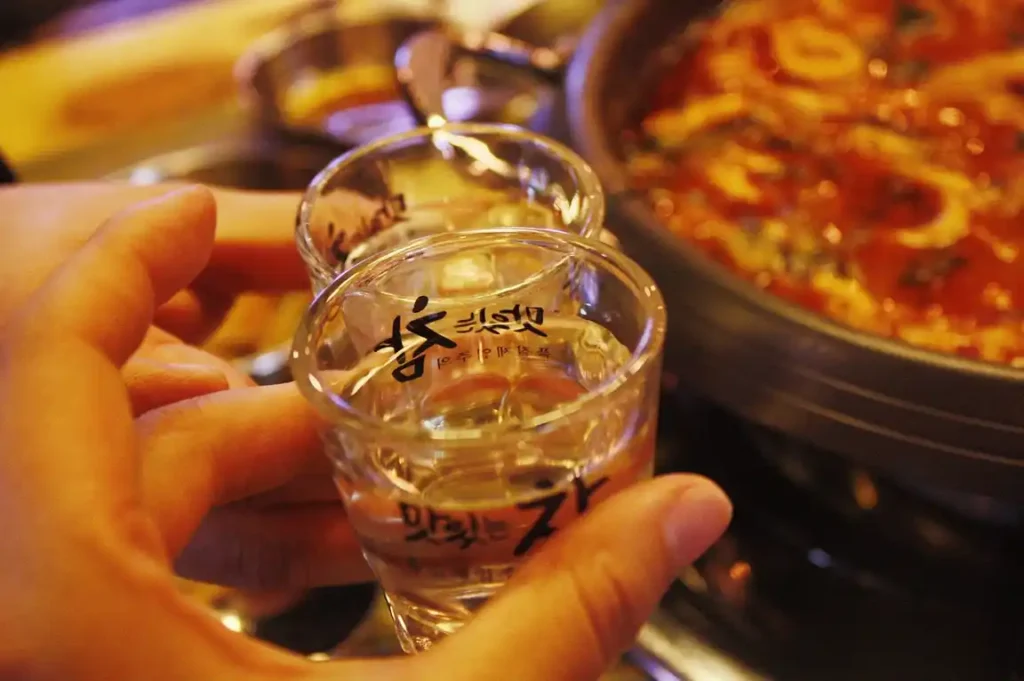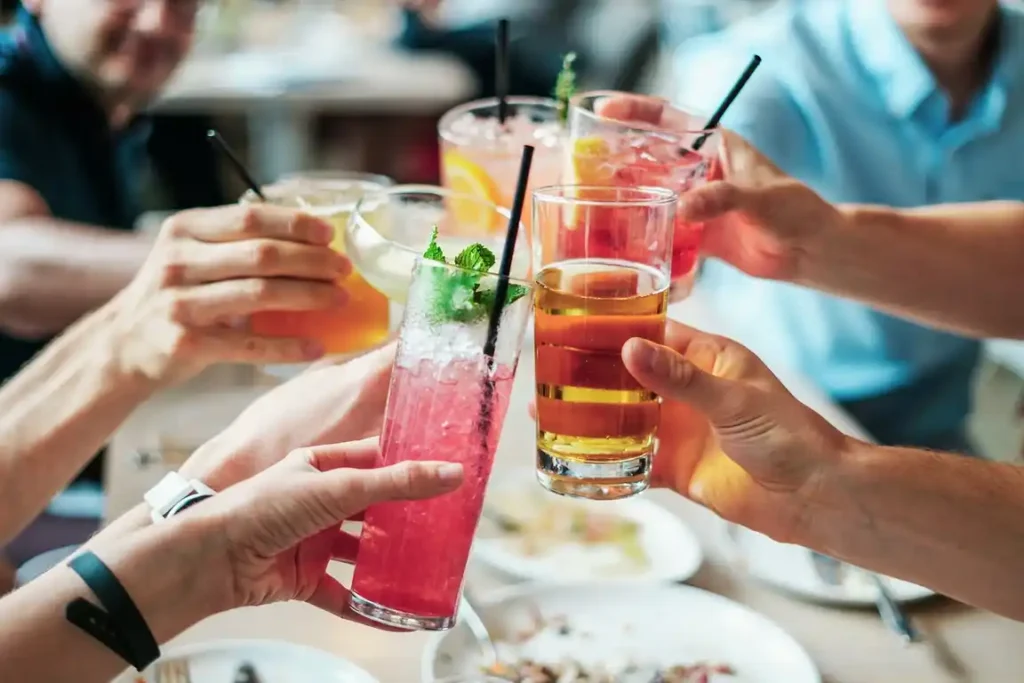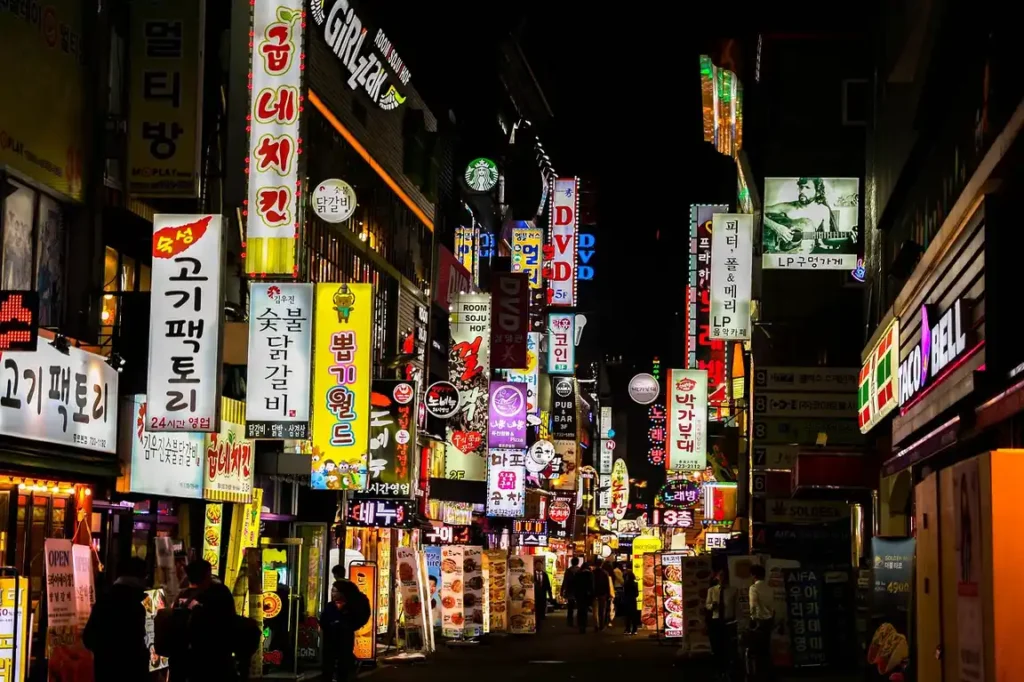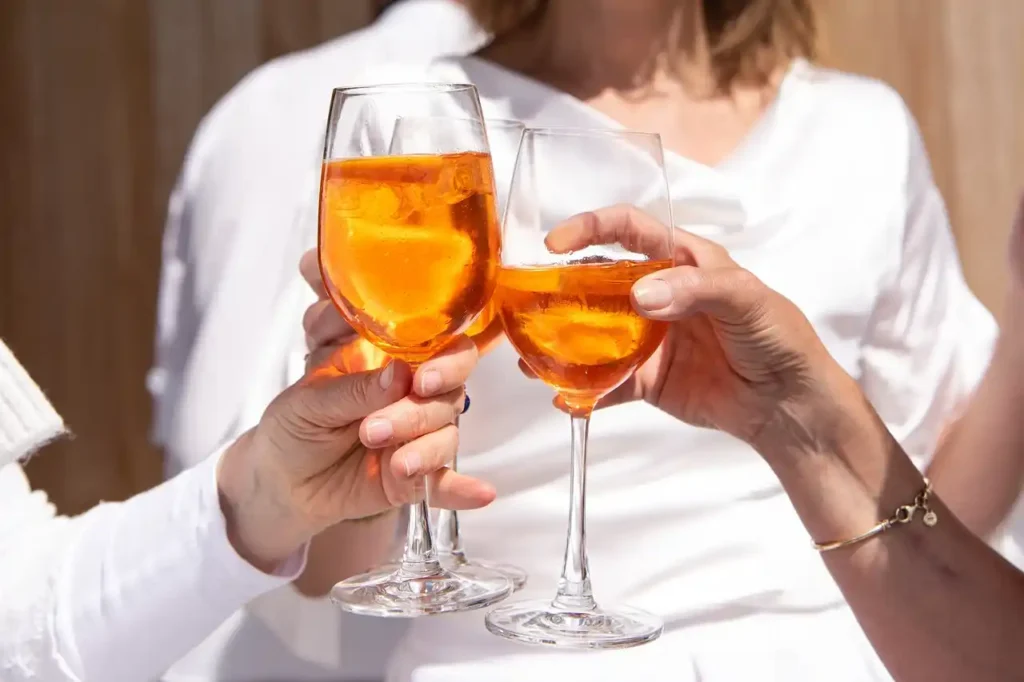When traveling or living in a foreign country, it’s crucial to understand the local customs and laws, particularly those involving alcohol. In this comprehensive guide, we will explore the drinking age in Korea, the nation’s vibrant drinking culture, and the impact of alcohol consumption on Korean society. By understanding and respecting these traditions, visitors and residents can fully immerse themselves in Korea’s unique social landscape while prioritizing their health and well-being.
Table of Contents
Legal Drinking Age in Korea
In Korea, the legal drinking age is 19 years old (in international age, or 20 years old in Korean age). This law applies to both South Korea and North Korea, making it consistent across the Korean peninsula. The legal drinking age in Korea allows young adults to purchase and consume alcoholic beverages, such as soju, beer, and makgeolli. However, the legal drinking age in South Korea is strictly enforced, and underage drinking is not tolerated. Retailers and establishments caught selling alcohol to minors may face hefty fines and penalties.
Understanding the legal drinking age in South Korea is vital for visitors and residents alike. It’s essential to respect the drinking age laws to avoid potential legal consequences and to ensure the well-being of all individuals involved.
Korean Drinking Culture
Korean drinking culture is deeply rooted in the nation’s history and plays a significant role in social interactions. Drinking is often viewed as a means of bonding with friends, family, and coworkers. In many cases, it’s customary for Korean coworkers to participate in after-work drinking sessions, known as hoesik. These gatherings are seen as an opportunity to build camaraderie and strengthen professional relationships.
When it comes to etiquette, there are specific customs that individuals who have reached the drinking age in Korea should be aware of:
- Pouring drinks for others: It’s considered polite to pour drinks for others, especially for those older than you. When receiving a drink, use both hands to hold your glass as a sign of respect.
- Turning away when drinking: When consuming alcohol in the presence of someone older or of higher status, it’s customary to turn your head away from them while taking a sip.
- Pace yourself: While there may be pressure to keep up with others, it’s essential to know your limits and drink responsibly.
Drinking culture in Korea is often centered around specific types of alcohol, with soju being the most popular choice. Soju is a distilled spirit made from rice, wheat, or barley, and its alcohol content typically ranges from 16% to 45%. Other popular alcoholic beverages in Korea include:

- Beer: Korean beers, such as Cass, Hite, and OB, are light and refreshing, with alcohol content usually ranging from 4% to 5%. These beers are often enjoyed with meals or at social gatherings.
- Makgeolli: This traditional Korean rice wine is a milky, sweet, and slightly fizzy beverage with an alcohol content of around 6% to 8%. It is often served in bowls and consumed with traditional Korean pancakes, known as pajeon.
- Cheongju: Also referred to as Korean sake or clear rice wine, cheongju is a smooth, slightly sweet alcoholic beverage made from fermented rice. It has an alcohol content of about 15% and is typically consumed in small cups.
- Fruit wines: Korea also has a variety of fruit wines, such as bokbunja (black raspberry wine) and maesil-ju (plum wine). These wines are sweet and fruity, with alcohol content ranging from 10% to 20%.
Understanding the different types of alcoholic beverages available in Korea and the customs associated with their consumption is essential for visitors and residents who have reached the legal drinking age in South Korea.
Drinking Establishments in Korea
Korea has a diverse range of drinking establishments that cater to various preferences and budgets. Some popular types of venues include:
- Hof (Korean bars): Hofs are Korean-style bars that serve a variety of alcoholic beverages, including beer, soju, and cocktails. They typically offer an assortment of anju (bar snacks) to accompany your drinks, such as fried chicken, seafood, and kimchi pancakes.
- Pojangmacha (street food tents): Pojangmacha are street food tents that serve affordable alcoholic beverages, such as soju and makgeolli, alongside a selection of Korean street food dishes. These informal venues are popular among locals and provide an authentic Korean drinking experience.
- Suljip (traditional liquor houses): Suljips are traditional Korean liquor houses that serve various types of traditional Korean alcohol, such as soju, makgeolli, and fruit wines. They often have a cozy atmosphere and serve traditional Korean food.
- Norae-bang (karaoke rooms): Norae-bangs are private karaoke rooms where patrons can sing and enjoy alcoholic beverages. These venues are popular for group gatherings and offer a fun and interactive drinking experience.
- Western-style bars and clubs: In larger cities, such as Seoul and Busan, there is a wide range of Western-style bars and clubs that cater to both the local and international crowd. These venues offer a more familiar drinking environment for visitors and expats and often serve a variety of international and craft beers, wines, and cocktails.
The Impact of Drinking Culture on Korean Society
The drinking culture in Korea has its consequences, and it’s essential to be aware of the potential implications of this tradition on society:
- Health issues: Excessive alcohol consumption can lead to various health problems, such as liver disease, heart issues, and other long-term complications.
- Pressure to drink: The social expectation to participate in drinking activities, especially in work environments, can create pressure for individuals who may not wish to consume alcohol.
- Alcohol-related accidents: The prevalence of alcohol in Korea increases the likelihood of alcohol-related accidents, such as traffic collisions and injuries.
- Impact on productivity: Frequent drinking engagements can impact workplace productivity, as late-night sessions followed by early morning work may result in employees struggling to maintain peak performance.
Promoting Responsible Drinking in Korea

In recent years, there has been a shift towards responsible drinking among those who have reached the legal drinking age in Korea. The Korean government, schools, workplaces, and citizens have made efforts to promote responsible drinking and address the issues associated with excessive alcohol consumption:
- Public awareness campaigns: The government has invested in public awareness campaigns to educate citizens about the dangers of excessive alcohol consumption and encourage responsible drinking habits among those who have reached the legal drinking age in Korea.
- Stricter enforcement of drinking age laws: Authorities have been cracking down on establishments that do not enforce the drinking age in Korea, ensuring that underage individuals are not granted access to alcohol.
- Alcohol education programs: Schools and workplaces have begun incorporating alcohol education programs into their curriculums, emphasizing the importance of responsible drinking and the potential consequences of excessive alcohol consumption.
- Designated driver services: To combat drunk driving, Korea has introduced designated driver services, allowing individuals who have reached the drinking age in Korea to hire sober drivers to transport them home safely after a night of drinking.
- Shift in societal attitudes: An increasing number of young Koreans are choosing to abstain from alcohol or consume it in moderation, reflecting a growing awareness of the importance of maintaining a healthy lifestyle and avoiding the negative consequences associated with excessive alcohol consumption.
Navigating the Drinking Age in Korea Responsibly

The legal drinking age in Korea is 19, but the nation’s drinking culture is much more complex than a simple number. While alcohol consumption remains an integral aspect of Korean society, there has been a noticeable shift towards responsible drinking habits among those who have reached the legal drinking age in South Korea. By understanding the nuances of Korea’s drinking culture and respecting its customs, visitors and residents can fully appreciate the unique aspects of Korean social life while maintaining a healthy lifestyle.
This comprehensive guide provides valuable insights into the drinking age in Korea, the cultural norms surrounding alcohol consumption, and the potential implications of this tradition on Korean society. As the nation moves towards a more responsible drinking culture, it is essential for individuals who have reached the legal drinking age in Korea to be informed and aware of the customs and expectations surrounding alcohol in the country. By doing so, they can ensure their safety and well-being, as well as the well-being of those around them, while enjoying the vibrant social experiences that Korea has to offer.
Frequently Asked Questions (FAQs)
What is the legal drinking age in Korea?
A: The legal drinking age in Korea is 19 years old in international age or 20 years old in Korean age. This law applies to both South Korea and North Korea.
Are there any penalties for underage drinking in Korea?
A: Yes, the legal drinking age in South Korea is strictly enforced, and underage drinking is not tolerated. Retailers and establishments caught selling alcohol to minors may face hefty fines and penalties.
What are some popular alcoholic beverages in Korea?
A: Some popular alcoholic beverages in Korea include soju, beer, makgeolli, cheongju, and fruit wines such as bokbunja and maesil-ju.
What are some common types of drinking establishments in Korea?
A: Korea has a diverse range of drinking establishments, including hof (Korean bars), pojangmacha (street food tents), suljip (traditional liquor houses), norae-bang (karaoke rooms), and Western-style bars and clubs.
How can I drink responsibly in Korea?
A: To drink responsibly in Korea, pace yourself, know your limits, respect local customs, and consider using designated driver services or public transportation to ensure a safe trip home after a night of drinking.
What is being done to promote responsible drinking in Korea?
A: The Korean government, schools, workplaces, and citizens have made efforts to promote responsible drinking through public awareness campaigns, stricter enforcement of drinking age laws, alcohol education programs, designated driver services, and a shift in societal attitudes towards alcohol consumption.
Is it common for people in Korea to drink with their coworkers?
A: Yes, it’s customary for Korean coworkers to participate in after-work drinking sessions, known as hoesik, as a way to build camaraderie and strengthen professional relationships. However, there has been a gradual shift towards more moderate and responsible drinking practices in recent years.
References
- Korea Legislation Research Institute. (2021). Alcoholic Beverage Control Act. Retrieved from https://elaw.klri.re.kr/eng_service/lawView.do?hseq=49362&lang=ENG
- Korea.net. (2017). Korean Drinking Culture. Retrieved from https://www.korea.net/AboutKorea/Culture-and-the-Arts/Food/Korean-Drinking-Culture
- The Korea Times. (2018). Korea’s drinking culture: Boon or bane? Retrieved from https://www.koreatimes.co.kr/www/opinion/2021/08/162_248635.html
- KBS World Radio. (2018). 1 in 5 Young Adults Abstain from Alcohol. Retrieved from http://world.kbs.co.kr/service/news_view.htm?lang=e&Seq_Code=139056
Read More
